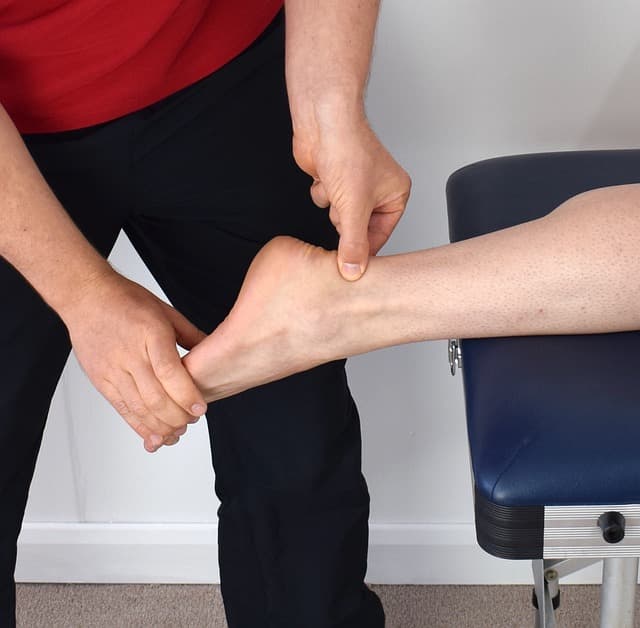The 8 Most Common Mistakes to Avoid in Addiction Recovery
Addiction recovery is a long and often challenging process that requires much hard work, patience, and commitment. Unfortunately, many people make mistakes during this process that can hinder their progress or even lead to relapse. This blog post will explore the eight most common mistakes to avoid in addiction recovery and tips for overcoming them.
1. Not Seeking Help
Not seeking help is a common mistake in addiction recovery, as people may feel ashamed or stigmatized by their addiction. However, seeking professional help is crucial for successful recovery.
A Houston outpatient rehab or a similar addiction treatment center near you is one option for those seeking help with addiction recovery. These centers offer various services, including counseling, therapy, and support groups, to help individuals overcome addiction and maintain long-term sobriety.
By seeking help at a rehab center, individuals can receive the support they need to address underlying issues and learn coping mechanisms to manage triggers and cravings. It’s essential to remember that there is no shame in seeking help and that it’s essential for successful addiction recovery.
There are many benefits to seeking professional help during addiction recovery. For example, a therapist or counselor can help you identify underlying issues that may have contributed to your addiction and provide coping strategies and emotional support. Additionally, support groups like Alcoholics Anonymous (AA) or Narcotics Anonymous (NA) can provide a sense of community and accountability.
If you’re struggling to find help, there are many resources available. Your healthcare provider can refer you to a therapist or counselor, and organizations like SAMHSA have resources for finding local support groups.
2. Expecting a Quick Fix
A common mistake in addiction recovery is expecting it to be fixed quickly. People may believe quitting an addiction is as easy as deciding to stop; however, this is far from the reality of addiction recovery. Addiction recovery is a long and often challenging process that requires time, effort, and dedication.
Individuals need to understand that there is no one-size-fits-all approach to recovery, and progress can be slow at times. It’s essential to be patient and persistent during addiction recovery and give yourself credit for small victories while focusing on achievable goals.
By setting realistic expectations and understanding the challenges involved in recovery, individuals can increase their chances of achieving long-term sobriety.
3. Neglecting Self-Care
Neglecting self-care is a common mistake in addiction recovery, as people may become too focused on their addiction and forget about taking care of themselves. Self-care is crucial for maintaining long-term sobriety.
Neglecting self-care can lead to burnout, stress, and negative emotions that can trigger relapse. Individuals need to prioritize self-care activities like exercise, healthy eating, meditation, and other activities that bring them joy outside of their recovery program.
When you’re in recovery, it can be easy to focus solely on your addiction and forget about other aspects of your life. However, it’s essential to maintain hobbies and interests outside of recovery to prevent burnout.
Find activities that bring you joy and inner peace and make time for them regularly. By prioritizing self-care, you can improve your mental and physical well-being, which can help you manage cravings and triggers and maintain a positive outlook on life.
4. Failing to Address Underlying Issues
Failing to address underlying issues is another common mistake in addiction recovery. Addiction is often tied to underlying issues such as trauma, mental illness, or stress. If these underlying issues are not addressed, it can be challenging to maintain long-term sobriety.
It’s essential to work with a therapist or counselor to identify and address these underlying issues during addiction recovery.
By addressing underlying issues, individuals can gain a better understanding of their addiction triggers and develop effective coping mechanisms to manage them.
Addressing underlying issues may require additional treatment or medication, and it’s important to remain open to exploring different treatment options. By addressing underlying issues, individuals can increase their chances of achieving long-term sobriety and maintaining a healthy and fulfilling life.
5. Holding onto Negative Relationships
Negative relationships can be detrimental to addiction recovery. Friends or family members who encourage negative behaviors or trigger relapse should be avoided. It can be challenging to cut ties with these individuals, but it’s important for an individual’s recovery.
Negative relationships can be detrimental to addiction recovery, and it’s essential to surround oneself with people who support their recovery goals and understand their struggles.
If an individual struggles with negative relationships, they should consider joining a support group like Al-Anon which can provide a safe space to share experiences with others who understand what they are going through.
Individuals can increase their chances of maintaining long-term sobriety by avoiding negative relationships and building a supportive network.
6. Isolating Yourself
Isolation can be dangerous in addiction recovery. It can lead to feelings of loneliness, depression, and anxiety, which can trigger relapse. It’s essential to build a support system during recovery to combat these feelings.
A support system can consist of friends, family members, or fellow support group members. It’s important to surround yourself with people who support your recovery goals and are understanding of your struggles.
7. Allowing Complacency to Set In
Complacency is a common mistake people make in addiction recovery. Once the initial stages of recovery have passed, it can be tempting to let your guard down and become complacent. However, this can be dangerous and lead to relapse.
To avoid becoming complacent, focus on setting new goals and maintaining accountability. Joining a support group or working with a therapist can help you stay motivated and accountable.
8. Not Addressing Relapse
Relapse is a natural part of addiction recovery, but it’s important to address it when it happens. It’s essential to understand what caused the relapse and learn from the experience to prevent it from happening again.
It’s important not to beat yourself up after a relapse. Instead, use it as an opportunity to recommit to your recovery goals and seek additional support if necessary.

Addiction recovery is a challenging process, but avoiding these eight common mistakes can make the journey a little smoother. Remember to seek professional help, be patient and persistent, prioritize self-care, address underlying issues, avoid negative relationships, build a support system, stay accountable, and learn from relapse. By avoiding these mistakes and focusing on your recovery journey, you can increase your chances of achieving long-term sobriety.
It’s important to remember that addiction recovery is not a one-size-fits-all process. What works for one person may not work for another. Don’t be afraid to explore different treatment options and find what works best for you.







